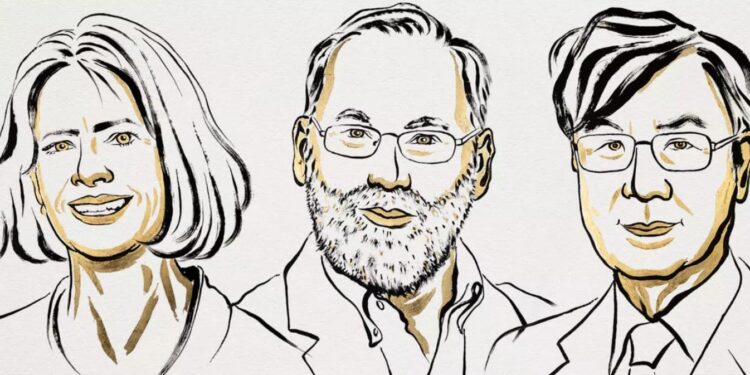The prestigious Nobel Prize in Physiology or Medicine 2025 was awarded this Monday, October 6, to the Americans Mary E. Brunkow And Fred Ramsdell and in Japanese Shimon Sakaguchi for their fundamental discoveries on the Peripheral immune tolerancean essential mechanism that prevents the immune system from attacking cells in the body itself.
Their work has made it possible to better understand how the body maintains the delicate balance between immune defense and autoimmunityopening the way to new therapies to treat diseases such as type 1 diabetes, multiple sclerosis or certain allergies.
Shimon Sakaguchi, Japanese immunologist, is considered the pioneer of research on regulatory T lymphocyteskey cells in the control of the immune response. Mary E. Brunkow and Fred Ramsdell, both American researchers, identified the Foxp3 geneessential for the development of these regulatory cells.
The Nobel Committee praised “a major advance for modern medicine”, stressing that these discoveries “have opened new therapeutic perspectives in the treatment of autoimmune diseases and transplant rejection”.
The Nobel of Medicine is the first in a series of prizes awarded each year in Stockholm and Oslo, before those of physics, chemistry, literature, peace and economy. This award highlights the importance of immunological research, in a context where autoimmune diseases affect an increasing number of people in the world.








